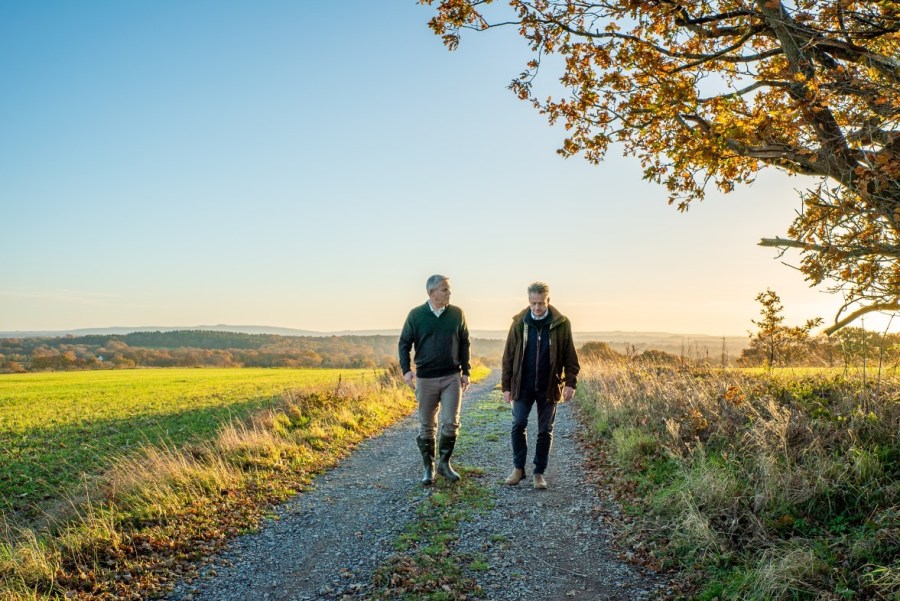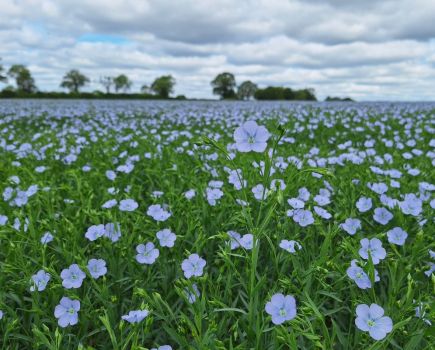The biggest upgrade to UK farming schemes since leaving the European Union has been set out by the Environment Secretary at the Oxford Farming Conference.
The updates include funding uplifts, streamlined application processes, enhanced environmental incentives and support for the roll out of new technology. It’s promised these will ‘provide further support’ for British farmers, strengthening supply chains and helping deliver the Government’s commitment to continue to produce at least 60% of the food we eat in the UK.
Under the UK’s agricultural transition, new farming schemes are paying farmers to take actions that boost sustainable food production while delivering positive outcomes for the environment. The schemes are designed to work for all farm types and sizes, with thousands of farmers across England already taking part.
Speaking at the conference, Steve Barclay reiterated the Government’s support for British farmers and outlined the updated offer for 2024 which has been designed using farmers’ feedback.
Improvements at a glance
The improvements include:
- A 10% increase in the average value of agreements in the Sustainable Farming Incentive and Countryside Stewardship driven by increased payment rates, with uplifts automatically applied to existing agreements.
- A streamlined single application process for farmers to apply for the Sustainable Farming Incentive and Countryside Stewardship Mid-Tier.
- Around 50 new actions that farmers can be paid for across all types of farm businesses, including actions for agroforestry and those driving forward agricultural technology such as robotic mechanical weeding.
- Enhanced payments for ‘creation’ and ‘maintenance’ options to improve the long-term incentives for farmers to create habitats and ensure they are rewarded for looking after habitats once they have created them.
- Premium payments for actions with the biggest environmental impact or combinations of actions that deliver benefits at scale, such as £765/ha for nesting plots for lapwing, and £1,242/ha for connecting river and floodplain habitat.
“Farmers do the essential job of keeping Britain fed. That’s why I’ll back British farmers and help support farming businesses,” says Steve.
“We’ve listened to farmers’ feedback and set out the biggest upgrades to our farming schemes since leaving the EU, with more money, more choice and more trust to support domestic food production whilst also protecting the environment,” he says.
Application timelines
Farmers will be able to submit their applications for the 2024 offer from this summer and the timeline for agreements being offered will be accelerated to help farmers benefit from the changes earlier than in previous years.
The application process will also be simplified in 2024 by enabling farmers to apply for the Sustainable Farming Incentive and Countryside Stewardship Mid-Tier through a single application.
Additionally, farmers and landowners can be paid for taking a range of actions under the government’s farming schemes, such as actions to improve soil health or providing nesting and foraging habitats for farmland wildlife.
Maintenance options
Steve explained that the Government has listened to feedback and introduced more ‘maintenance’ actions, alongside improving existing actions, to reward farmers who are already protecting the environment, for example through maintaining grasslands, wetlands and scrub. Farmers will also be paid more for existing actions to maintain habitats, with the price of maintaining species rich grassland, for example, rising from £182 to £646 per hectare.
The offer also includes more actions for shorter length agreements of up to three years to make the schemes more accessible for tenant farmers.




